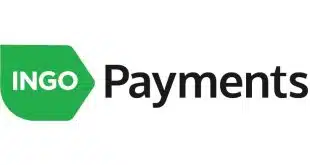Isaac Newton and Robert Boyle were two geniuses who labored with passion on their vision to replace gold digging with science: alchemy. It was an overshot. But their labor lay the groundwork for modern chemistry. Hundreds of years later, brilliant mathematicians try to replace gold digging with cryptographic tools. History repeats itself.
Elements coming forth in Bitcoin are used today to endow society with cyber money: account public visibility, zero knowledge proof. Alas, as with the alchemists of yore, the core vision was not sustainable. It was exciting, nonetheless, offering unguided community consensus; disallowing any minority of elites to dictate to the majority.
Bitcoin enthusiasts view central banks as oppressors. They claim that mathematics will come to the rescue. But without authorities to sort out the nodes of the network, one scheming individual could establish a myriad of nodes, and lay claim to undue power. Satoshi Nakamoto fixed this flaw. Instead of node count, use labor count to allocate power (mining), Nakamoto said.
This helped somewhat, but not enough. The few, the rich, invest in mining equipment and disrupt the fair and balanced allocation of power. It turns out that whatever the mathematics, a smart and resourceful minority can bend it to their advantage. This minority is well hidden, so there is no clear address to hold accountable, to rectify the distortion. The advantage of a central bank is that it does have an address and there are means to fix things.
Once alchemy climbed down from its unattainable vision to cook gold in the old lab, the door was opened to the marvels of chemistry. Once crypto drops the dream of payment without an accountable social entity, the beauty and benefit of digital money will come into full bloom.
Bitcoin’s combined message of public-account visibility and zero proof of knowledge is, no doubt, brilliant. It replaces secret bank accounts with publicly visible records where the account owners can prove ownership without revealing what they wish to keep private. This allows for the transactional history of each digital coin to be made public while offering privacy to the traders.
Now that is a negotiable mathematical challenge. Today, most crypto coins rely on a single algorithm (Elliptic curve). This algorithm’s days are numbered, assailed as it is by the looming quantum computers. Yet, the zero-knowledge concept can be rescued by countermeasures. BitMint, for instance, applies algorithmic mutation. Much as Covid-19 survives through mutation, so digital coins can mutate their base algorithm and stay ahead of their predators, manifesting mathematical decentrality.
Bitcoin money is self-referential. It does not exist outside the Bitcoin protocol. This nothing-to-something process faces the reverse prospect of something-to-nothing. By making cyber money other-referential, it becomes a digital claim check to an asset that draws its societal value from deeper roots, and hence increases stability and reliability.
This notion opens the door to manifestation of decentrality. Every asset of transactional value—be it a fiat currency, real estate, any license, specified rights—can be traded through digital claim checks. And every entity commanding some measure of public trust (not necessarily banks) may offer such digital strings to represent those assets. Lively competition will blossom along with a large variety of coins, which will combine and attain ever-growing stability and utility.
Many closed doors stand in our way. Let’s open them one by one and find out what’s behind them. Hundreds of years after the failure of alchemy, modern chemistry discovered that gold can indeed be created from other elements. Who knows what insight awaits digital money as it is used to lift society to new heights?
—Gideon Samid, gideon@bitmint.com





